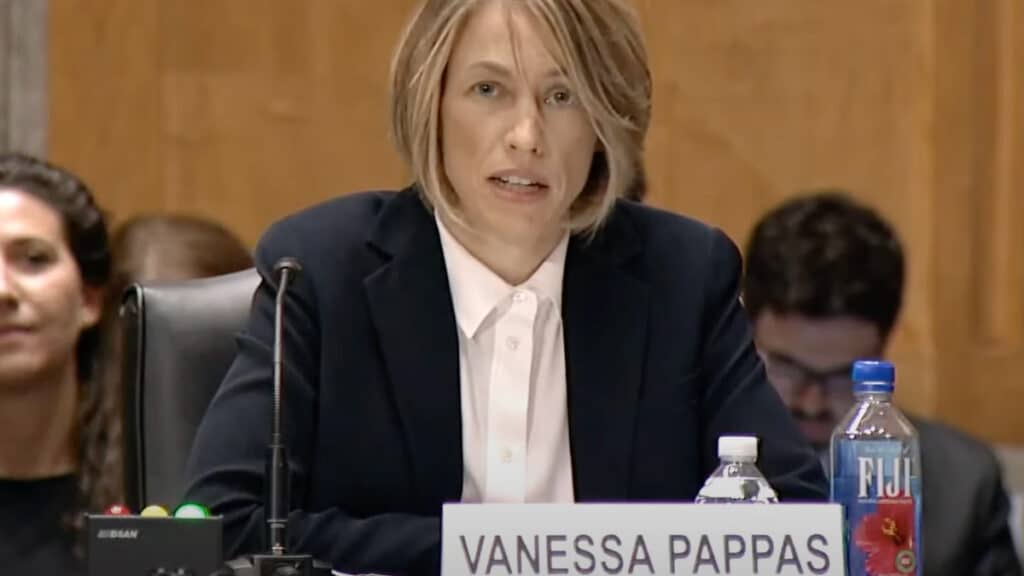Agreement on Transparency and Researcher Access, But Will It Matter?
John Perrino / Sep 19, 2022John Perrino is a policy analyst at the Stanford Internet Observatory.

Social media executives — some current, some former, and one turned whistleblower — were on Capitol Hill last week for a series of blockbuster hearings on social media safety and security. Déjà vu, anyone?
In this round, Twitter and TikTok were most squarely in lawmakers’ crosshairs, with discussion of policy proposals largely taking a back seat. But that misses an important development: there appeared to be bipartisan and industry support for transparency and researcher access to study social media datasets.
“It's pretty clear, we need transparency. We need to have… the active involvement of researchers that use that data and researchers — whether they are academics or civil rights groups, or rights organizations, journalists — everybody has to be engaged,” said Senate Homeland Security and Governmental Affairs Committee Chairman Gary Peters (D-MI).
There is also a growing drumbeat to proactively address online harms that stem from the design of platform features — ranging from unwanted contact to the promotion of spam and potentially harmful content in feeds. The hearings marked a pivotal moment for “trust and safety” as a field: the phrase received 42 mentions over the course of Wednesday’s marathon, two-panel Senate hearing on Social Media’s Impact on Homeland Security.
But if the prevalence of a phrase is any indication of its salience, the path forward should start with transparency, which was mentioned 79 times during that hearing.
Sens. Amy Klobuchar (D-MN) and Chris Coons (D-DE) raised the Platform Accountability and Transparency Act (PATA) during a Senate Judiciary Committee hearing with Twitter whistleblower Peiter “Mudge” Zatko. The next day, Sen. Rob Portman (R-OH) raised the legislation as a first step to holding social media companies accountable during a Senate Homeland Security and Governmental Affairs Committee hearing with panels of former and current social media executives. The legislation was introduced as a draft bill late last year by Sens. Coons, Klobuchar, and Portman, who is the ranking member of the Senate Homeland Security Committee. Although the legislation has not yet been introduced, PATA is the leading policy proposal for transparency with prominent endorsers, including former President Obama.
PATA would require social media companies to provide vetted independent researchers with access to social media datasets. It sets up a mechanism for research proposals to be reviewed and facilitated by the National Science Foundation, with the terms of the law enforced by the Federal Trade Commission. While the draft bill limits this access to university-affiliated researchers, policymakers and researchers have expressed support for journalists and certain nonprofit organizations to be eligible when the bill is formally introduced. The bill would also provide legal protection for researchers and journalists who independently collect social media data as long as certain security and privacy protections are in place and the data is used for research or reporting in the public interest. Tech firms would be required to regularly publish information on engagement, reach, and similar metrics for public content to provide insight into what is happening on their platforms, similar to ad libraries.
In May, the Senate Judiciary Subcommittee on Privacy, Technology, and the Law held a hearing on the Platform Accountability and Transparency Act as the draft was circulated in an effort to gain “a broader range of co-sponsors.” In part, PATA addresses an unhealthy reliance on whistleblowers for platform research, as my Stanford colleague, Nate Persily highlighted in a Washington Post column last year in which he introduced the idea for the legislation.
During the Senate Judiciary Committee hearing with Mudge, the whistleblower and former chief security officer at Twitter said he is a “big fan” of independent groups being able to study platform data, and that engineers are also largely in support of researcher access to social media data.
“I believe that the Platform Accountability and Transparency Act is one of the most important pieces of legislation that is before you all,” said Brian Boland, a former vice president at Facebook during the next day’s Senate Homeland Security Committee hearing. The other witnesses on the panel expressed “100 percent” agreement.
"For all the debate whether social media is good or bad, we don't know... we have the right to know... with the right incentives in place and rules around transparency, we can develop a better understanding of these issues and take steps to mitigate the harms," Boland said.
The witnesses responded to allegations of partisan filtering and content moderation by responding that PATA could address those concerns. “Today, we're operating in a vacuum… these companies are so massive and there's so much content, you can cherry pick examples to prove almost anything you want about these companies,” said Alex Roetter, former Twitter senior vice president for engineering.
The second panel with industry representatives was more heated, but agreement was once again found around the need for transparency. Executives at Meta, YouTube, TikTok, and Twitter all expressed general support for transparency legislation when asked about PATA and outlined their company initiatives to support transparency and researcher access to data. TikTok COO Vanessa Pappas said “transparency builds trust... we would be happy to support that transparency."
Catching Up With Europe
Europe may provide a model for U.S. policymakers and research organizations that, under a law like PATA, would need to address the complexities of facilitating data exchange between tech firms and researchers while protecting the data security and private information of users. Most of the concerns expressed about mandating data sharing with researchers center on data protection, as addressed by Sen. Peters last week. Others have raised more novel concerns, such as whether individual researchers could be compelled to provide the data they are provided to law enforcement.
On these questions, the Europeans are ahead. Much progress has been made over the summer on how to implement researcher access in a way that is compliant with the EU General Data Protection Regulation (GDPR) and the Digital Services Act (DSA). If Europe can get it done, it should provide a model for US policymakers. Even apart from potential legislation, as Politico Chief Technology Correspondent Mark Scott reported last month, there is apparently appetite in the White House to craft a voluntary mandate for social media platforms to provide researcher access and conduct risk assessments.
In the Homeland Security and Governmental Affairs Committee hearing, Boland, the former Facebook executive, responded that “it is absolutely possible” to address privacy and data protection concerns. He noted that more and more content on social media is public, and protection for private data is already being facilitated for ads with aggregate data provided in public ad library dashboards.
Last month, the Center for Democracy and Technology released a report, “Improving Researcher Access to Digital Data” that drew insights from a workshop with social media researchers and privacy experts. The report author, Caitlin Vogus, outlines key recommendations, including that social media companies need to inform researchers about what kinds of data are available, have secure tools and processes to request non-public data or access public data with a legislative focus on providing legal access to public data. For non-public data, the vetting process should be transparent and not dependent on whether a research is in academia or not. Similarly, New York University’s Cybersecurity for Democracy research center has previously outlined proposals for access to "reasonably public" content with high engagement and to advertising data.
Meanwhile, in the European Union, international experts are convening with the European Commission to facilitate mandated researcher access to data from the largest social media companies in the region. Industry and civil society experts released a European Digital Media Observatory report to inform the legal and technical facilitation of data sharing. Those details could help inform technical standards and data protection protocols which could then be adopted under legislation like PATA in the United States. Platforms including Meta’s Facebook and Instagram, Twitter, YouTube, and TikTok will all likely have to comply with research data requests by summer 2023 under the DSA.
The question now is whether Congress will be able to move forward after the elections. Perhaps there is reason for optimism. During the Mudge hearing, Sen. Lindsey Graham (R-SC) expressed support for “a system more like Europe, a regulatory environment with teeth,” and said he had come to agreement with both Sens. Elizabeth Warren (D-MA) and Josh Hawley (R-MO) on the need for tech accountability. Sometimes strange bedfellows can signal a breakthrough.
Authors
